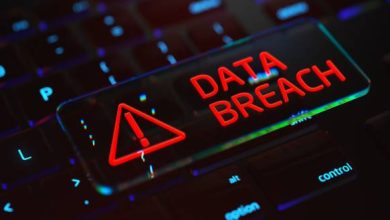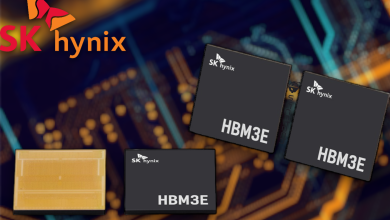Propelling Blockchain Adoption in Malaysia: Highlights from the MDEC Blockchain Tech Adoption Summit
Ushering in the Era of Blockchain

The Malaysia Digital Economy Corporation (MDEC) recently made another significant stride in advancing the nation’s digital agenda with the second edition of the Malaysia Digital Tech Adoption Summit. Held on October 4th, 2024, this event placed blockchain technology front and center, underlining its crucial role in driving Malaysia’s digital economy forward. The summit, officiated by the Deputy Minister of Digital, YB Datuk Wilson Ugak Anak Kumbong, was a key milestone in reinforcing Malaysia’s ambition to become the digital hub of ASEAN, in line with the Malaysia Digital (MD) national strategic initiative.
Although blockchain emerged from the world of cryptocurrency, it has since evolved into a versatile technology that is reshaping industries, fostering transparency, security, and efficiency in various sectors, including finance, healthcare, and supply chain management. Over the years, diverse applications of blockchain have opened up new avenues for digital trust, enabling more secure transactions and data sharing. For these reasons, it is steadily gaining traction in Malaysia.
Today, more than 840,000 Malaysians hold accounts with regulated digital asset exchanges. In 2021 alone, RM21 billion in digital assets were traded, a monumental leap from RM1.4 billion in 2020. Such figures reflect blockchain’s growing significance in Malaysia’s economy, demonstrating the country’s readiness to harness its potential across industries. In addition, Malaysia has established itself as one of the top 10 crypto-friendly destinations for digital nomads and businesses, attracting a vibrant ecosystem of innovation and investment.
As Datuk Wilson Ugak emphasised during the summit, “The recognition of blockchain’s significance is growing. Blockchain is increasingly recognised as a core technology driving the Fourth Industrial Revolution alongside artificial intelligence and Web3, ensuring Malaysia remains competitive in the global digital landscape.” This statement sums up Malaysia’s vision to lead the global blockchain wave rather than just follow it.
Blockchain’s Potential Across Key Sectors
Blockchain’s ability to transform industries was a central theme of the summit. Its promise of enhanced transparency, traceability, and security makes it a powerful tool across various sectors. In the finance industry, blockchain is enabling decentralised finance (DeFi) platforms that challenge traditional banking systems. The healthcare sector benefits from secure, tamper-proof medical records, ensuring patient data remains confidential and accessible only by authorised individuals. Supply chain management is another sector where blockchain is revolutionizing processes by enabling real-time tracking and verification of goods, ensuring transparency from the manufacturer to the end consumer.
In Malaysia, numerous organisations have successfully implemented blockchain technology to not only address industry-specific challenges but also unlock new efficiencies in operations and transparency. These include:
- Masverse has helped industries such as Islamic finance, education, and supply chain management to streamline operations and increase transparency. One of its standout innovations is a blockchain certification system, which allows educational and professional organisations to issue tamper-proof certificates. This system enhances trust among stakeholders by making credentials easily verifiable. Additionally, Masverse has developed a blockchain-based fund distribution solution that provides real-time tracking of resource allocations, further improving transparency and operational efficiency.
- Sinisana, in collaboration with the Sarawak Biodiversity Centre (SBC), has leveraged blockchain technology to manage SBC’s Access and Benefits Sharing (ABS) program. This partnership ensures transparency in tracking payments made to remote communities in Sarawak. The blockchain-powered application allows SBC to monitor production in real time, ensuring fair compensation for all contributors and eliminating redundant paperwork.
- Serunai Commerce Sdn Bhd has made strides in ensuring transparency and security within the global halal supply chain through its Halal Digital Chain (HADIC™). By connecting various components of the halal value chain, HADIC™ standardises halal accreditation, benefiting Muslim consumers, manufacturers, and traders worldwide. This blockchain-powered system enables seamless tracking of halal certifications, guaranteeing the integrity of halal products across borders.
- Intelligence Traceability (Itrace) provides traceability solutions that are critical for maintaining audit trails and enabling cross-chain communication with other countries. Their blockchain solutions offer greater trust in product sourcing, ensuring that consumers are aware of the origins of the products they purchase. This increased transparency has contributed to premium pricing for products, as consumers are willing to pay more for items with clear, verifiable origins.
These success stories are just the tip of the blockchain iceberg. What was once seen as a fringe technology closely linked to cryptocurrency is now driving industries to rethink their core operations. The ripple effect is undeniable, and the question is no longer ‘if’ but ‘how quickly’ Malaysia will lead the charge into a blockchain-powered future.

Empowering SMEs and Corporations
The beauty of blockchain is that it is not just for large enterprises—it can also be a powerful tool for small and medium-sized businesses (SMEs). Its decentralised nature offers SMEs opportunities to streamline their operations, boost productivity, and reduce costs. Whether through automated contracts, transparent transactions, or secure digital identities, blockchain can provide smaller businesses with advanced capabilities previously reserved for larger corporations.
Nevertheless, successful blockchain integration requires not only technological advancement but also a conducive regulatory environment. The summit’s discussions emphasised the need for agile and adaptable regulations that foster innovation while protecting consumers and businesses. Malaysia has made strides in this area, especially in the past few years, and the summit shone a spotlight on the government’s commitment to crafting a regulatory landscape that will undoubtedly help nurture a conducive space for blockchain innovation.
YB Datuk Wilson Ugak reaffirmed this commitment, stating, “The Ministry is fully committed to creating the necessary policies, infrastructure, and incentives to support the adoption of blockchain across industries.” This approach will be crucial as Malaysia seeks to solidify its position as a digital leader, both regionally and globally.
Recognising the complexity of the landscape, the Malaysia Digital Tech Adoption Summit featured engaging Blockchain Business Matching Sessions, designed to bridge the gap between tech providers, enterprises, and policymakers, creating a fertile ground for innovative collaborations in the blockchain sphere. These sessions explored blockchain’s potential in real-world applications and laid the groundwork for future partnerships.
A diverse array of organisations took part, and these interactions are vital for harnessing blockchain’s full potential. For instance, among those that stood out during these sessions was MIMOS, the research and development agency under the Ministry of Science, Technology and Innovation (MOSTI). Shamsul Anuar bin Abdul Wahid, Director of Strategic ICT at MIMOS, noted that blockchain’s true power lies in its ability to enable “problem-solving capability and the creation of new business models.”
Shamsul explained how MIMOS is one of the local agencies actively contributing to the push for blockchain adoption in Malaysia by tackling implementation challenges with AI-powered predictive analytics and automated code generation. “We’re not just building a blockchain network; we are creating infrastructure akin to highways and petrol stations enabling anyone to use it,” he said. His comments underline how important it is to create a solid foundation for blockchain to thrive and to make the technology accessible and scalable across industries.

Blockchain to Drive Malaysia’s Digital Adoption Ambition
Malaysia’s ambitions for blockchain are part of a broader strategy that includes the MyDIGITAL and Fourth Industrial Revolution (4IR) frameworks. These national initiatives aim to increase productivity by 30% through technology-driven solutions. Blockchain’s ability to streamline operations, enhance transparency, and improve efficiency aligns perfectly with these goals.
MDEC has been at the forefront of this transformation, championing not only blockchain but also AI, Web3, and other emerging technologies. The agency remains steadfast in its mission to accelerate technological advancement and position Malaysia as a regional leader in digital innovation. Strategic initiatives such as the Malaysia Digital Tech Adoption Summit demonstrate MDEC’s proactive role in driving change.
Blockchain technology is set to play a transformative role in Malaysia’s digital future. With support from MDEC, MIMOS, and key government stakeholders, the nation is well-positioned to lead in blockchain adoption and innovation. The Malaysia Digital Tech Adoption Summit underscored the importance of cross-industry collaboration and a supportive regulatory environment in realising blockchain’s full potential.
As blockchain continues to evolve, it will empower SMEs, streamline supply chains, and foster greater transparency in industries like finance and healthcare. Malaysia’s forward-thinking approach, aligned with the MyDIGITAL and 4IR frameworks, will ensure the country remains at the forefront of global digital transformation. The future of blockchain in Malaysia looks promising, offering immense opportunities for businesses, innovators, and policymakers alike to drive growth and secure a competitive edge in the global economy.




